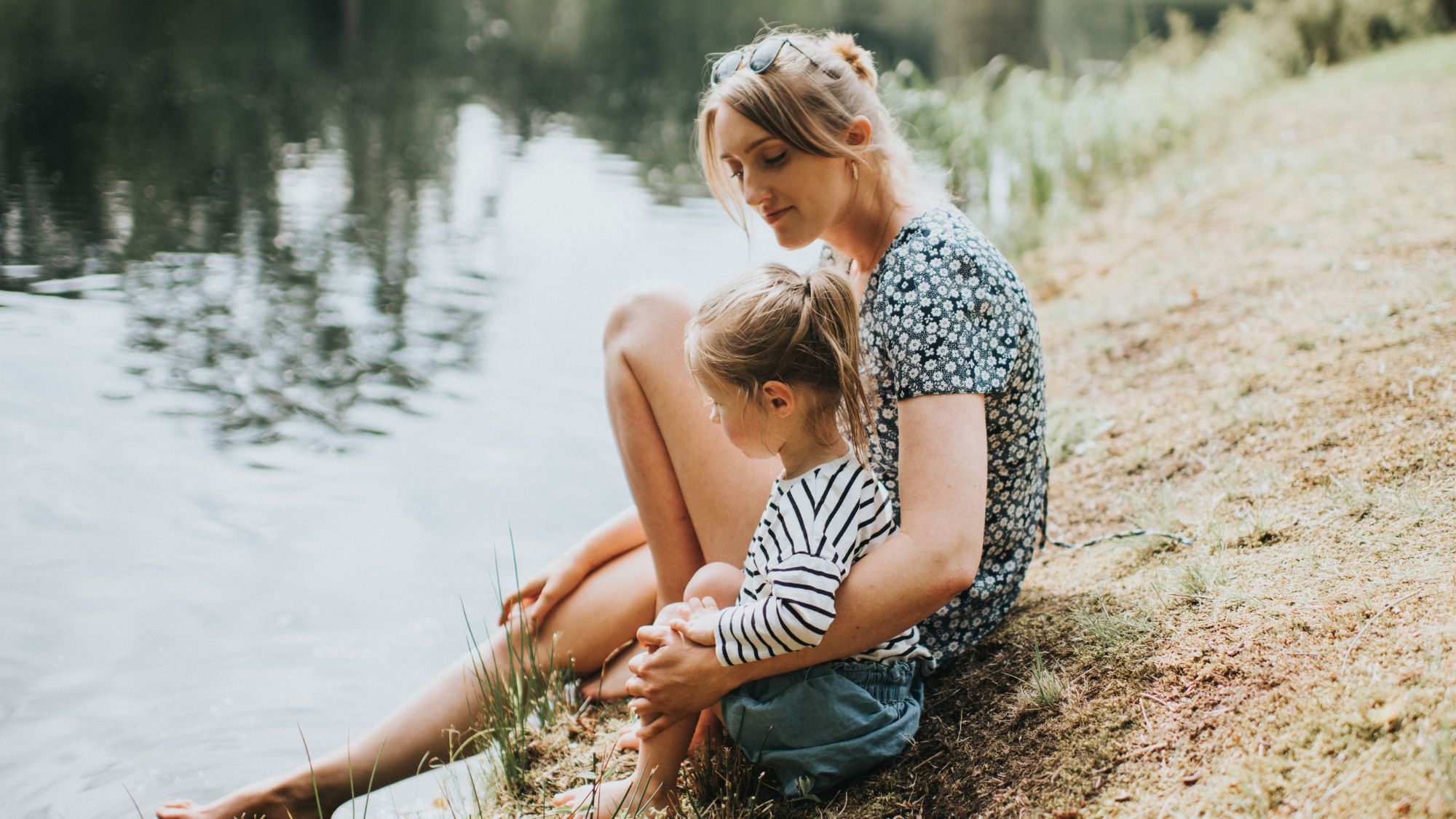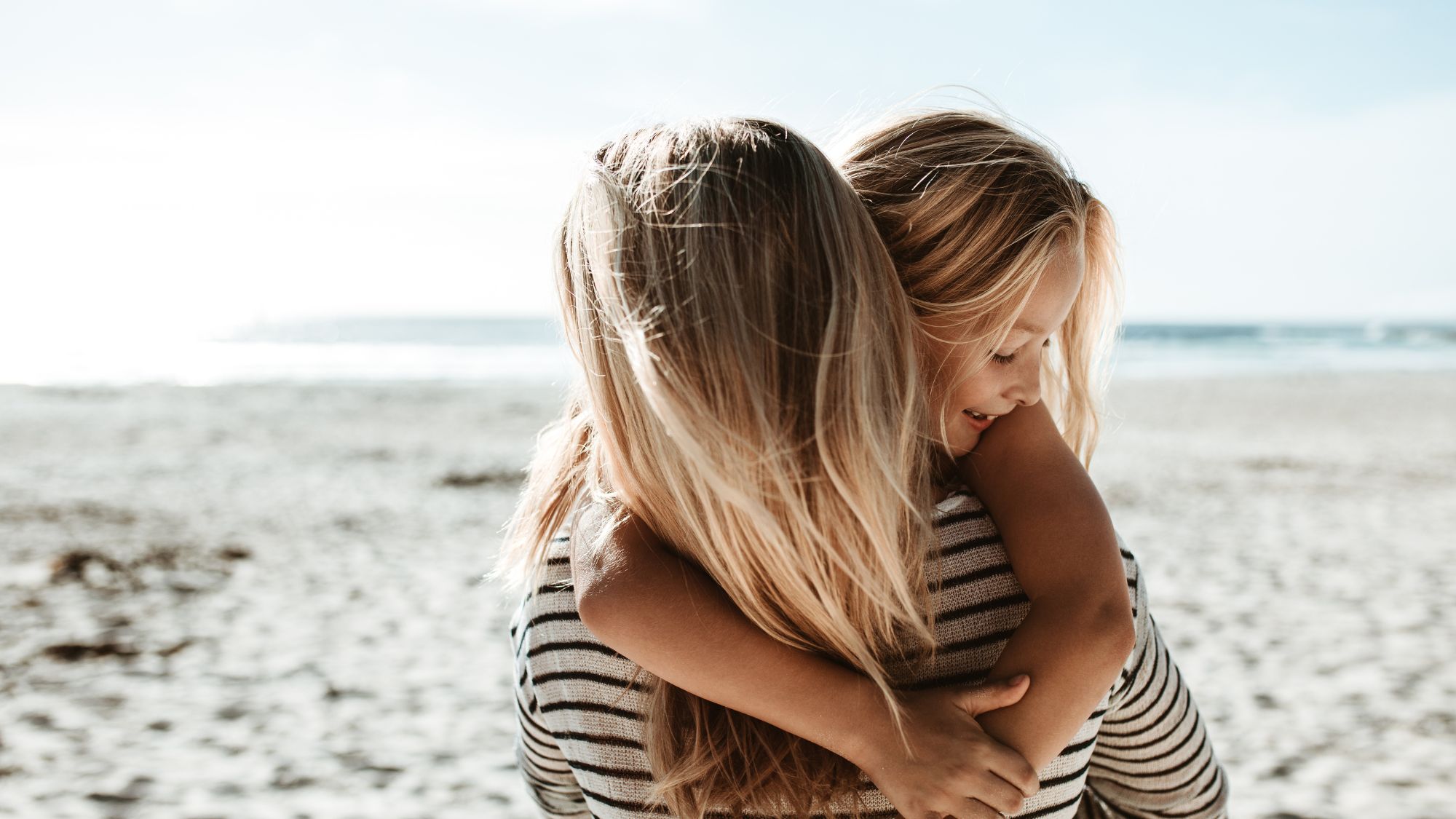"How living in France has reshaped my idea of motherhood"
Since moving to France with her husband and toddler, Alix O’Neill has discovered a totally refreshing approach to parenting from her new (très chilled maman) friends

Celebrity news, beauty, fashion advice, and fascinating features, delivered straight to your inbox!
You are now subscribed
Your newsletter sign-up was successful
Since moving to France with her husband and toddler, Alix O’Neill has discovered a totally refreshing approach to parenting from her new (très chilled maman) friends
Heading to the park with my son not long ago, I bumped into my neighbour, Carole. She was off on a girls’ night out and looked fresh faced, calm and relaxed with no signs of having given birth eight weeks earlier. Carole freely admitted she’d made the transition to motherhood and parenting relatively easy on herself by adopting a flexible "no rules" approach. She took each day as it came, wasn’t reading any books and combined breastfeeding with formula, which allowed her husband to do night feeds while she got some sleep. "Happy mum, happy child, right?" she said with a conspiratorial wink. I couldn’t help but envy her.
I assumed that feeling bone-weary tired 24/7 was simply part and parcel of parenting, but here was a new mum showing me another way. I should mention that Carole is French. My husband, toddler and I moved to the south of France six months ago (in search of more time together as a family, less stress commuting and sunshine), and discovered that attitudes here to bringing up a baby vary wildly from our hyper-parenting culture in the UK. For a start, French women don’t seem to engage in maternal one-upmanship. When I put my son in a crèche two days a week to go back to work after four months, many English mums I told were shocked. Here, women nodded in agreement. In France, women receive 16 weeks’ paid maternity leave and childcare is heavily subsidised by the state (the average two-child family in England with two working parents spends around 40 per cent of its disposable income on childcare, compared to ten per cent in France*), so most return to the workplace sooner and without judgment.
I’ve never fully subscribed to the perennial fixation with French women. In my short time living in France, I can confirm that our Gallic counterparts have their foibles and hang-ups just like the rest of us, but it’s hard not to be impressed by their self-assuredness. The French women I’ve met take ownership of their opinions and choices, and don’t feel the need to explain themselves. This is especially true of parenting. I’ve encountered plenty of non-working mothers who put their kids in a crèche one or two days a week, so they can have some "me time" because in France, you’re a woman first and a mum second, which (the theory goes) is ultimately better for the child. So ingrained is this belief in the national psyche that the French government subsidises "perineal re-education", ie Kegel classes, so new mums can get back to enjoying a healthy sex life as soon as possible. Maybe this is why France has one of the highest birth rates in Europe.
French parents can interfere in other ways, though. I’ve been told my son looks too hot/cold/is unruly at the dinner table. And I’m not sure I’m cut out for their authoritarian approach to discipline. Anglophone kids may be less well behaved, but they seem to become more social and creative as adults. That said, I like how motherhood isn’t all-consuming here. It’s simply another – albeit important – part of a woman’s identity. As my friend Meryem tells me, "I didn’t feel any pressure from family or society to be the perfect mum. It was up to me to find myself as a mother." Perhaps French mums are less critical of their peers because they don’t have high expectations of parenthood in the first place. "In France, we assume the early years will be challenging and our kids will drive us crazy. We’re not aiming for perfect in the first place," says Meryem.
I made no such assumption when I became a mum. Like most parents, my husband and I fell into that classic "our kids will be different" trap. I’d read French Children Don’t Throw Food by Pamela Druckerman and naturally reckoned my 19-month-old would absorb good behavioural habits by osmosis, while I enjoyed my morning coffee and croissants in peace. My son, however, appears not to have received the memo. Instead of playing ball, he’s progressing exactly as a toddler should, finding ever inventive ways to torment his parents. I’ve found books lying on the street after he’s chucked them out of the window of our first-floor flat. And last week, he burst into the bathroom while I was on the toilet and tried to insert a Duplo block into my vagina.
On a good day, I can laugh at this boundary-pushing. But when my husband is on a work trip and I don’t have family nearby or any help (our childminder has gone on holiday for the summer – it’s a French thing), I often feel overwhelmed by the day-to-day demands of motherhood. I look at the chaos around me – the overturned dining chairs, the food on the floor – and beat myself up for failing to stay on top of things. I’m ashamed to admit I lie awake at night wondering how I’ll manage more than one child. I’m currently pregnant with number two, who at the time of writing is due in seven weeks. It’s been a difficult pregnancy, and I try to keep in mind that my mother-in-law raised six kids and got on with it.
Celebrity news, beauty, fashion advice, and fascinating features, delivered straight to your inbox!

In the past 19 months, we have become parents, moved homes and countries twice, and are in the process of buying our first house. And yet, instead of acknowledging the stress that inevitably comes with any major life change, never mind several at once, I refuse to give myself a break for not being the consummate mum. "Modern-day motherhood is a far cry from that experienced by women a few decades ago," says psychologist Emma Kenny. "With the rise of social media, along with a slew of parenting 'experts' and countless contradictory parenting styles, all promising to create the perfect child, it’s unsurprising that women feel motherhood has become a competitive sport. Being a great parent involves trusting yourself, and you can only do that when you shut down other people’s voices and allow that instinct to filter through."
When I told my Parisian friend Nathalie, who I met through a local mother and baby group, that I was a bad mum because I typically leave my son to his own devices in the park so I can catch up on emails and have a coffee in peace, she rolled her eyes. "You Anglophobes think good parenting is spending every second with your children and ignoring your own needs. But this won’t help them to become independent adults. If you don’t take care of yourself, what good are you to your child?"
From the ubiquity of parenting tomes to Instamums with their babycino-sipping broods, the pressure to get motherhood "right" has never been greater. And while it’s encouraging to see more women pushing back against this ideal of parenting with brutally honest accounts of its challenges, it often feels that, like the Madonna-whore dichotomy, there are only two types of mother. There’s the Good Mum, who selflessly devotes herself to her offspring’s every need, and the Bad Mum, counting down the hours to gin o’clock. We rarely see the middle ground; what writer Zadie Smith refers to as the "good-enough parent. There’s this idea you have to be a part-time clown and chef, and that your children should never be bored. I don’t see this as an important part of childhood."
Recently, I found solace in a US podcast called Motherhood Sessions, in which psychiatrist Dr Alexandra Sacks doles out therapy to mothers struggling with various aspects of the role. Dr Sacks coined the term "matrescence" – the idea that when a child is born, so too is a mother.
"It takes time to integrate the part of you that is a mother and loves your child, and the 34 years of you that didn’t have her," she tells a woman in one episode. I reckoned I could juggle a job I love with pregnancy and moving countries, while being the devoted mum; the kind I had growing up. My mum did it all – the home births, the handmade Halloween costumes, the dispensing of chicken soup and daytime TV when we were sick. She gave herself to motherhood fully and willingly. And while she now admits that she made personal sacrifices for her daughters’ happiness, I never for a second doubted her love for us. I guess in admitting I need more, I’m worried I’ll deprive my children of that emotional security I had growing up. But, as Dr Sacks says, "There’s more than one way for children to feel loved."
Two of the best mothers I know – one a full-time lawyer; the other a writer who fits in her work around four kids – don’t follow the Good Mum rules. One admits to days-old dishes cluttering her worktop and an overflowing laundry basket, while the other, struggling to get her ten-month-old off the breast, considers any solids a win – and if that’s a chocolate brownie, so be it. Both accept motherhood has its joyful days and bad days, but mostly it’s somewhere in between. It’s not perfect parenting, but it’s good enough for me.
*According to The organisation for Economic Co-operation and Development (oECD)
This article has been updated since its publication in 2020.
The leading destination for fashion, beauty, shopping and finger-on-the-pulse views on the latest issues. Marie Claire's travel content helps you delight in discovering new destinations around the globe, offering a unique – and sometimes unchartered – travel experience. From new hotel openings to the destinations tipped to take over our travel calendars, this iconic name has it covered.